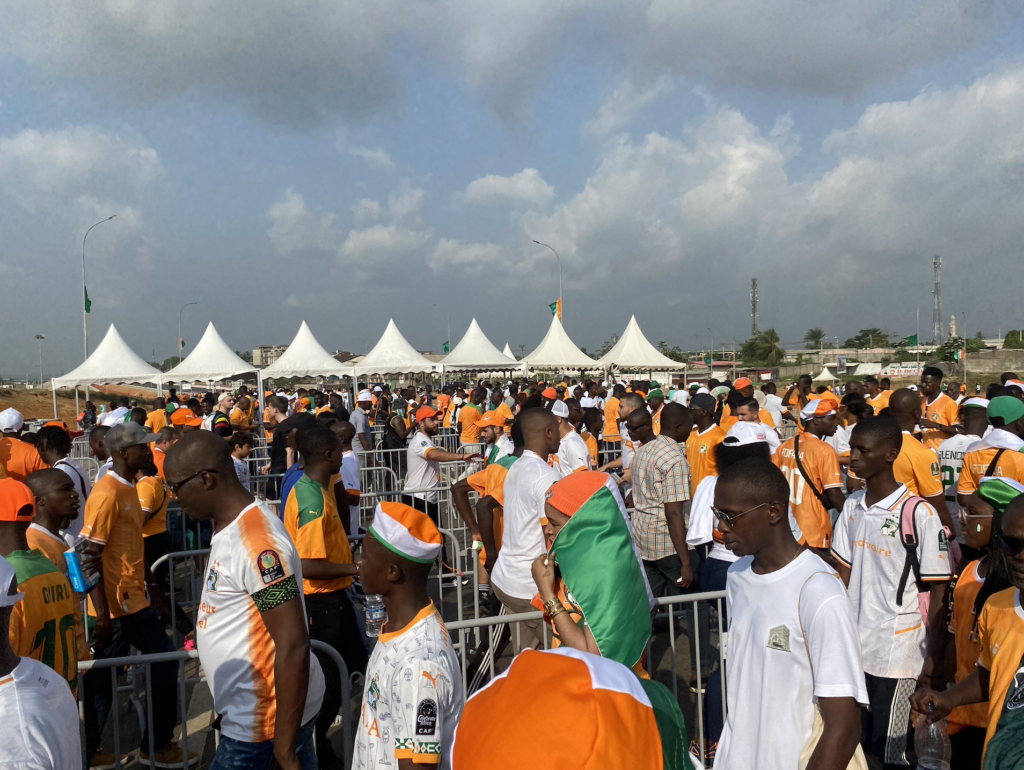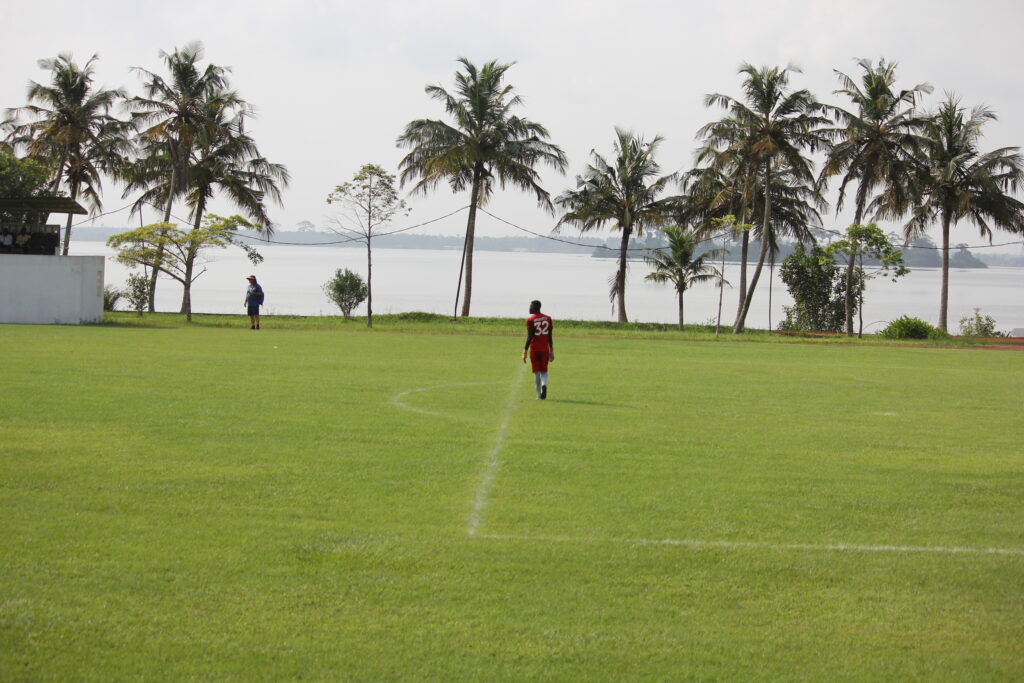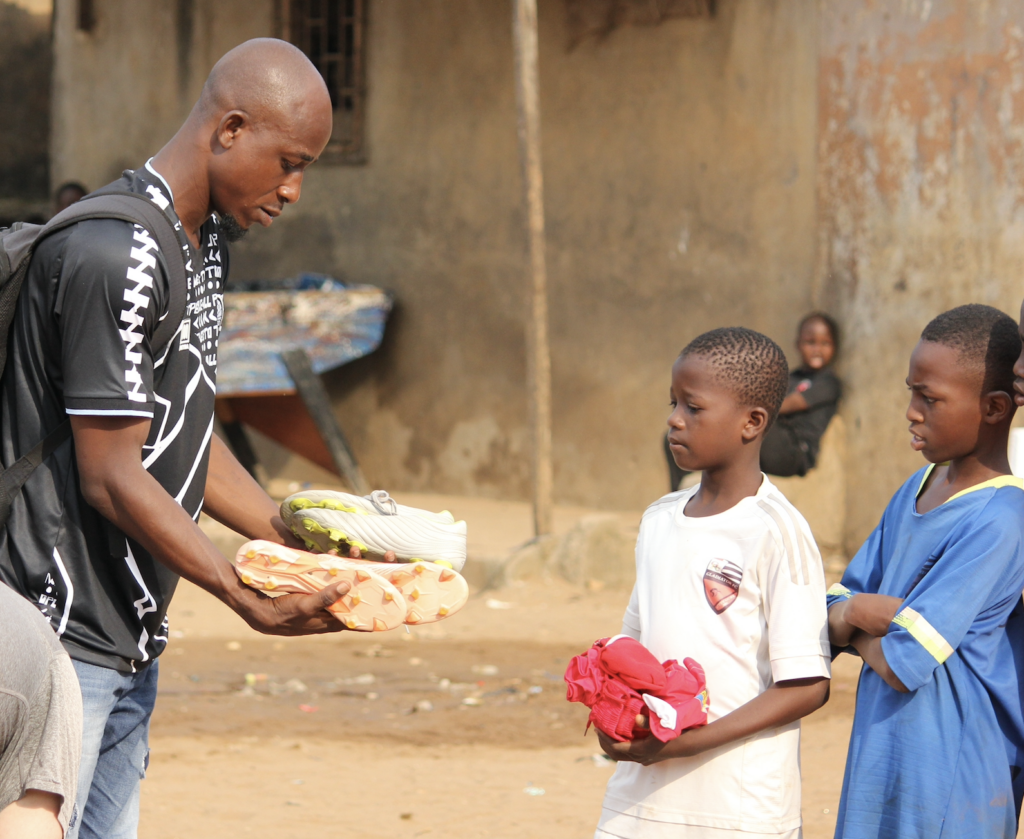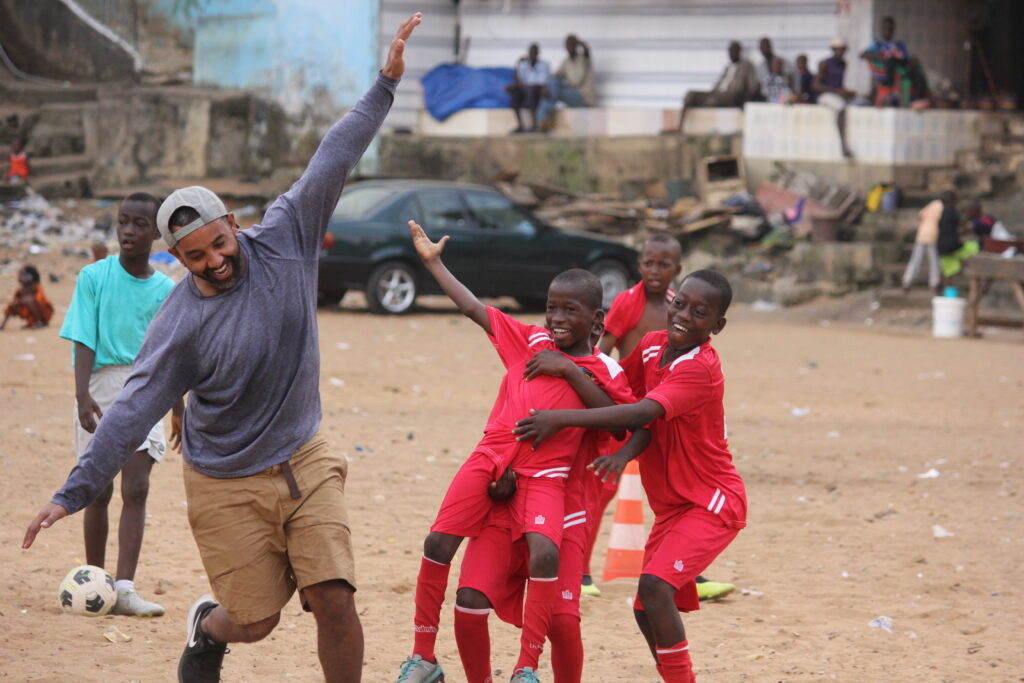NorCal West Africa Coaching Education Trip: Côte d’Ivoire

ABIDJAN, Côte d’Ivoire – It was impossible to avoid it.
Everywhere you looked, in the streets, restaurants, schools, gas stations, hotels, and dirt soccer fields, it was there, bright orange.
Roughly one of every three people in the capital sported the colors worn by the Côte d’Ivoire National Team when 12 NorCal Premier Soccer coaches arrived in the country’s largest city last week to attend the 2023 Africa Cup of Nations during their West African coaching education trip.
After spending five days in Ghana, the group headed to its western neighbor to soak in the atmosphere surrounding the continent’s biggest sporting event.
During the biannual tournament, the coaches attended seven matches split between three different cities, with the majority experiencing African international soccer for the first time.
“The passion in Africa is different, for us this is just like the World Cup,” said Greenhaven Soccer Club Technical Director and William Jessup Women’s Head Coach Amsalu Fantahun, an Ethiopian native who also works as part of his country’s technical staff. “ Here in Côte d’Ivoire we see it from two years old all the way to adults: everyone wants to follow the tournament.”
“Growing up, I watched this on TV, paying 50 cents to watch on a 24-inch screen,” Fantahun added. “I still remember the commercials that were playing and before that we would just listen to games on the radio. It’s a different experience, an amazing one.”
While the coaches on the trip garnered a better understanding of the world’s game through those seven AFCON games, featuring regional powers such as Algeria, Côte d’Ivoire, Egypt, Ghana, and Senegal, NorCal’s time in the nation included several other aspects of a footballing education.

Before watching their last two international games on Monday, the coaches took a bus an hour west of Abidjan to take in a local youth tournament at the pristine beachfront facility of Ivoire Academie, one of the top producers of talent in the whole country.
According to the dozen, the quality of the players and of the team impressed in the two games, which were played between U18 teams from all across the country under the baking West African sun.
Unlike with the academy matches, the day’s main event, a Côte d’Ivoire home game against Equatorial Guinea, failed to deliver as the home side fell 4-0.
The orange was still impossible to ignore as droves of fans exited the match well ahead of the final whistle due to their disappointment with Les Elephants.
In spite of the result, the orange jerseys remained ubiquitous in the city the following day when NorCal traveled to Attécoubé on the outskirts of Abidjan.

There, Côte d’Ivoire trip fixer Keita Kassoum welcomed the coaches to the district of the city he grew up in, an impoverished area that has produced numerous talented players such as AC Milan winger Chaka Traoré.
Kassoum’s club, Gladiator FC, occupies the biggest field in the area, a dirt square surrounded by worn down buildings occupied with people full of smiles.
In Attécoubé, the NorCal coaches ran a training session with three different age groups while Kassoum spoke about the challenges his club and country face in soccer and everyday life.
For Gladiator FC, funding is everything.
The program is free for the players, but because the vast majority of them won’t play professional soccer, Kassoum makes it a priority for every kid to receive a good education. This requires financial means–public school is free, but families often can’t afford the cost of books, backpacks, or uniforms.
Furthermore, because the Côte d’Ivoire government often pays their teachers late, the teachers frequently stay at home instead of showing up for a job they’re never sure will compensate them for their hard-working hours.
The alternative for Ivorians is to enroll their children in private schools, which start at roughly $140 a year, another sum that proves cost-prohibitive for those raising kids in the neighborhood.
Past that, Gladiator FC also struggles to acquire equipment for their eager youngsters, leaving Kassoum to constantly forage for opportunities to give his players what they deserve.

“There are a lot of costs, we need shirts, we need cleats, we need balls,” Kassoum said through a translator. “It’s not easy to get things like that here. These are such important things that we have to work for.”
In the vast majority of the world, these costs are covered through funds given to youth clubs when their players sign professional contracts.
However, actually receiving compensation for developing future professional players can often be a challenge for youth clubs in the region.
Kassoum hopes to change this for his side in the near future, aspiring to be a place where kids can earn opportunities either by signing professional contracts or excelling in school.
As he wrapped up his comments, the seven coaches who led sessions returned to say goodbye to the community in a series of heartfelt moments.
None of the seven were fluent in French, but they still managed to get their points across to the youngsters.
“That’s why they say football is global,” Fantahun said. “Even in the big professional environments, most of the coaches and players don’t speak the same language. Football is football. It’s a ball. You put a ball out there and set a goal and everyone comes to play. It felt like back home, the environment, the situation, the game, the smile of the kids.”
“I was in tears just standing there watching the little kids play.”












